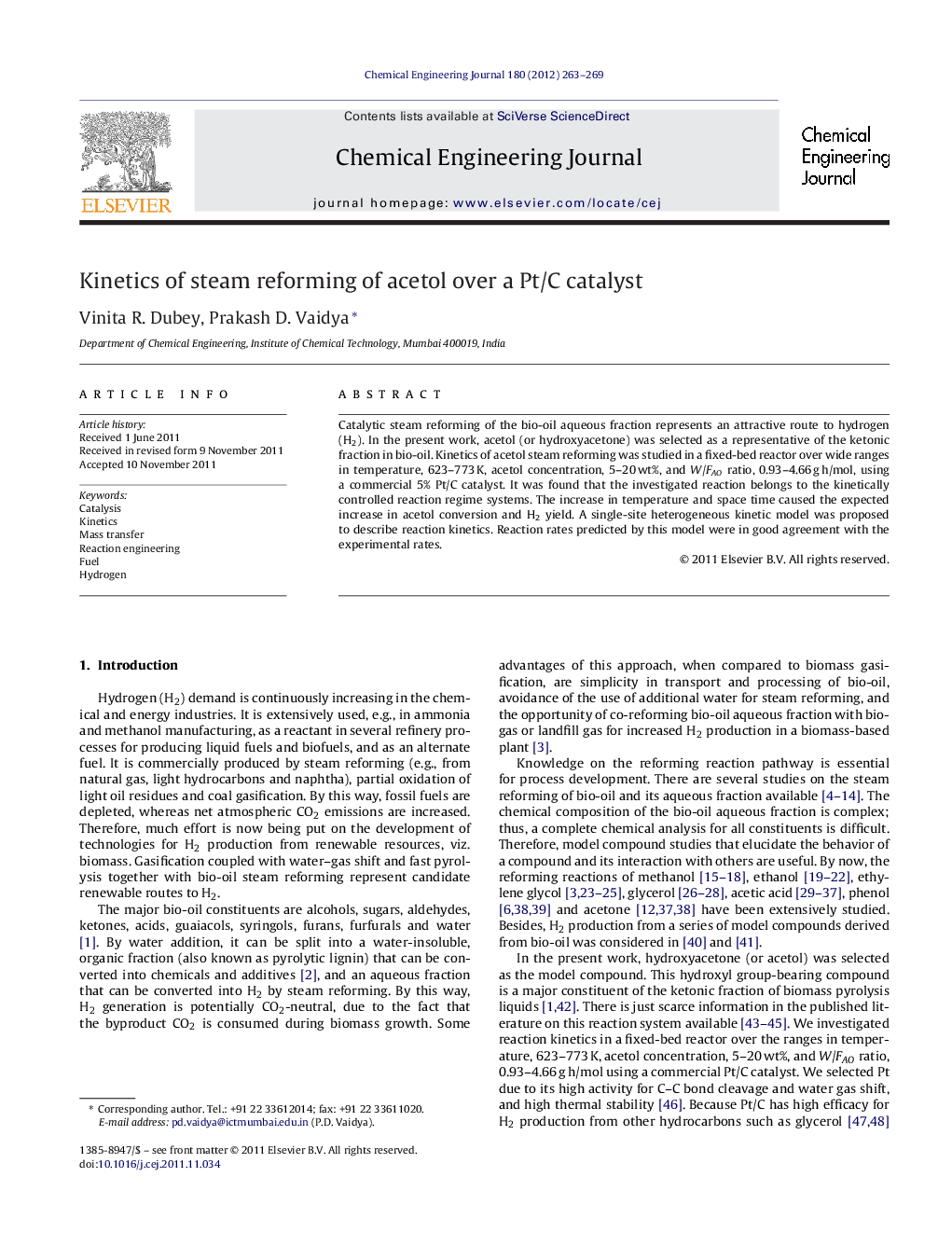| Article ID | Journal | Published Year | Pages | File Type |
|---|---|---|---|---|
| 150375 | Chemical Engineering Journal | 2012 | 7 Pages |
Catalytic steam reforming of the bio-oil aqueous fraction represents an attractive route to hydrogen (H2). In the present work, acetol (or hydroxyacetone) was selected as a representative of the ketonic fraction in bio-oil. Kinetics of acetol steam reforming was studied in a fixed-bed reactor over wide ranges in temperature, 623–773 K, acetol concentration, 5–20 wt%, and W/FAO ratio, 0.93–4.66 g h/mol, using a commercial 5% Pt/C catalyst. It was found that the investigated reaction belongs to the kinetically controlled reaction regime systems. The increase in temperature and space time caused the expected increase in acetol conversion and H2 yield. A single-site heterogeneous kinetic model was proposed to describe reaction kinetics. Reaction rates predicted by this model were in good agreement with the experimental rates.
► The investigated reaction belonged to the kinetically controlled reaction regime systems. ► High temperature and space time facilitated H2 production from acetol. ► We proposed a power law model suggesting fractional reaction order with acetol (0.85). ► Kinetic data were described by a single-site heterogeneous kinetic model.
